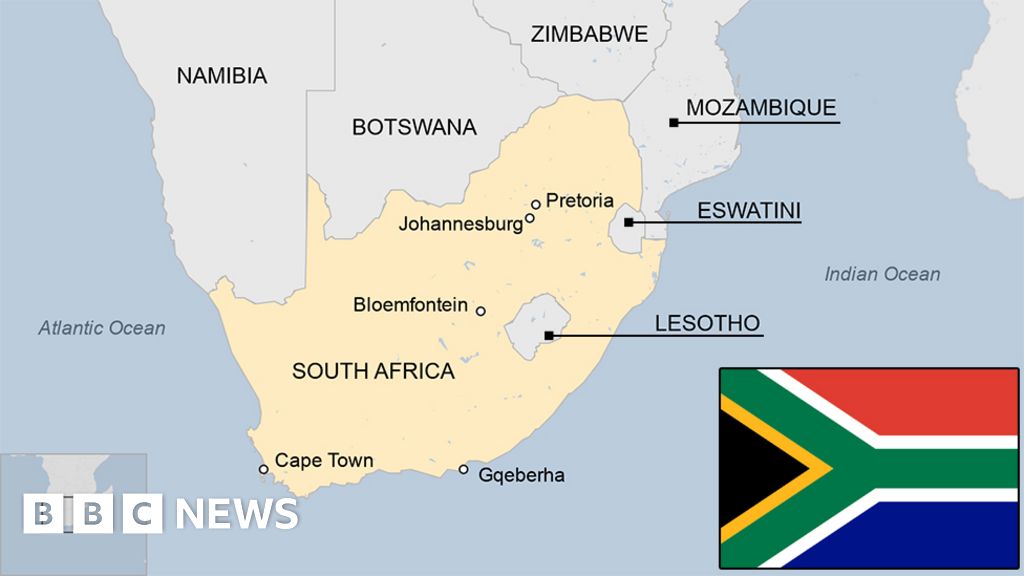South Africa’s Political Landscape: From Apartheid Rule to a Coalition Government
South Africa, known for having one of the continent’s largest and most developed economies, boasts a rich yet tumultuous history. Its path has been shaped by decades of apartheid rule and a dynamic political landscape that reflects ongoing efforts to tackle severe economic and social challenges.
Historical Context: From Apartheid to Democracy
For nearly 40 years, South Africa was under the control of a white minority government led by the National Party, which came into power in 1948. The government imposed a policy of apartheid, legally institutionalizing racial segregation and discrimination. This period of oppression was marked by international isolation, armed opposition, and mass protests. From the late 1980s, the apartheid laws started to be repealed, leading up to the first universal elections in 1994.
In those historic elections, the African National Congress (ANC) emerged victorious, with Nelson Mandela at the helm as the first black president. Mandela’s presidency marked the start of a new era focused on reconciliation and rectifying deep-seated social injustices. Despite these efforts, the journey has been fraught with economic hurdles.
Economic Struggles
Fast forward to 2022, and the World Economic Forum issued a stark warning: South Africa was at risk of state collapse. The country faced daunting challenges, including record unemployment, high crime rates, unsustainable state spending, mismanaged institutions, and rampant corruption. These issues painted a grim picture of a nation grappling with the legacies of its past while trying to forge a stable future.
A New Political Dawn
A significant political shift occurred in the May 2024 elections when the ANC failed to secure a parliamentary majority for the first time since apartheid ended. Winning just 40% of the vote—a drastic drop of 17 percentage points—the ANC lost 70 seats in parliament. Cyril Ramaphosa, however, was sworn in for a second term as President in June 2024 due to a strategic coalition.
To form a government, the ANC joined forces with its longtime rival, the Democratic Alliance (DA), which came in second with 22% of the vote, and three smaller parties. This coalition marked an ideological shift towards the political center. The DA, often viewed as catering to the interests of the white minority despite its denials, and known for its free-market stance, now had to find common ground with the ANC’s social welfare traditions.
Both parties pledged to address critical issues like infrastructure repair, the provision of basic services such as water and power, and job creation. At his inauguration, President Ramaphosa highlighted the coalition’s commitment to tackling inequality and promoting economic growth. However, he cautioned that failing to address deep social divides could lead to instability, underscoring the persistent "toxic cleavages" and "incipient social fragmentation" within the country.
Media Landscape and Regional Influence
South Africa is also a key player in the continent’s media sphere. Its broadcasters and press represent the diversity of its population. The country benefits from both state-run and commercial television networks, with many viewers subscribing to satellite and cable services.
The influence of South Africa-based MultiChoice, which markets satellite pay-TV in various African countries, further solidifies the nation’s media presence.
Key Historical Events
South Africa’s history is dotted with significant events that have shaped its current socio-political and economic landscape:
- 4th Century: Migrant groups from the north settled, joining the San and Khoikhoi people.
- 1652: Jan van Riebeeck, representing the Dutch East India Company, established the Cape Colony.
- 1816-1826: Shaka Zulu founded the Zulu empire, creating a formidable military force.
- 1948: The National Party introduced apartheid, institutionalizing racial segregation.
- 1994: Nelson Mandela became president after the first non-racial elections, leading a Government of National Unity.
In recent years, the country has seen developments such as hosting the 2010 World Cup and grappling with high-profile legal cases like the 2014 sentencing of Paralympic athlete Oscar Pistorius.
Looking Ahead
The coalition government faces an uphill battle in rectifying systemic issues and fostering national unity. President Ramaphosa’s administration must not only implement practical solutions but also work diligently to mend the deep-seated divides that continue to challenge South Africa’s progress.
With a rich historical backdrop and evolving political dynamics, South Africa remains a nation of both substantial potential and considerable challenges.
For more information about the African National Congress (ANC), visit their official website.
